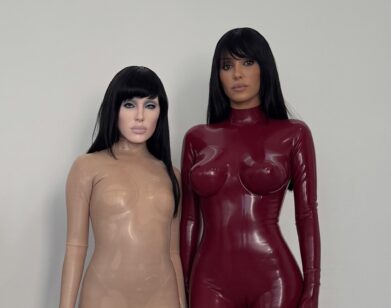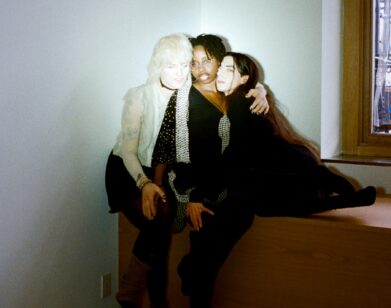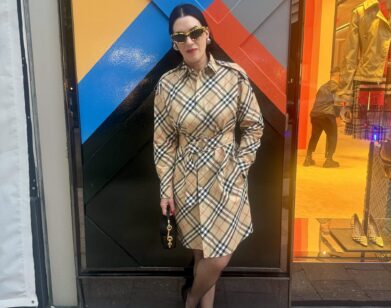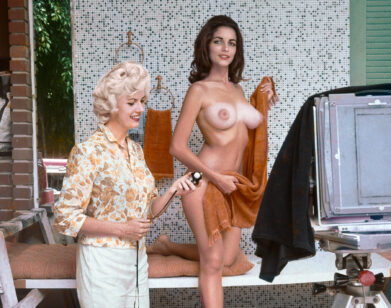Nigel Cooke Confronts Painted Reality
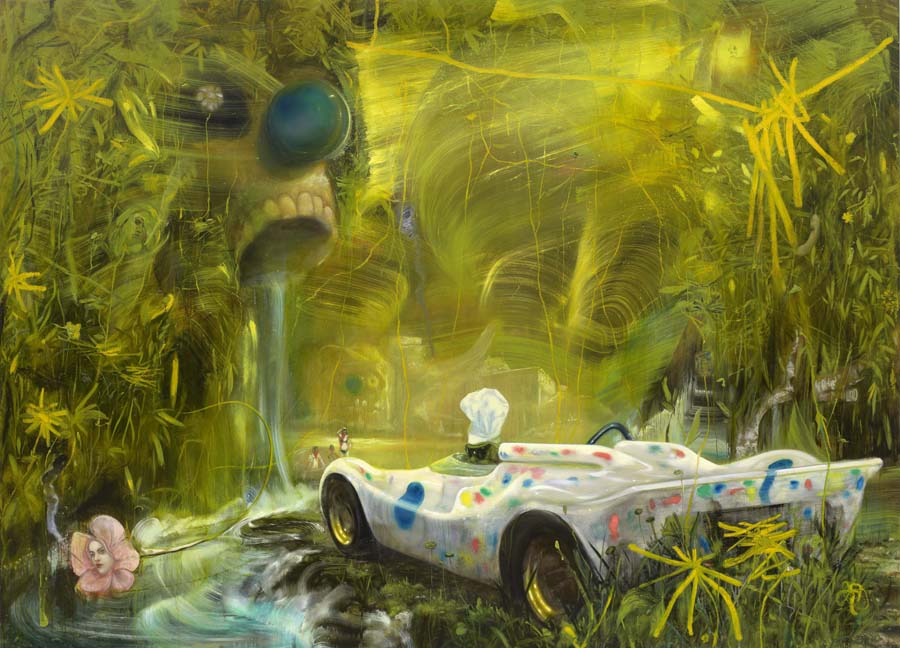
Nigel Cooke, Spring, 2012. Photo: RG Image. Courtesy Andrea Rosen Gallery, New York, NY
Nigel Cooke’s exhibition of 10 new paintings at the Andrea Rosen Gallery continue the artist’s romantic trajectory while striking new ground. This time around the painter’s lush, sublime surfaces and landscapes are interrupted by a turbulent combination of sweeping abstract paint strokes that loom large over comparably small-scale figurative motifs. This show also presents the publication of Words (2012), a new book of the artist’s writings that debate the influence of popular culture and mass media upon his own search for authentic, painted content. Interview met up with Nigel Cooke to discuss his ongoing investigation of the relationship between word and image and his newfound interest in two opposing genres.
JILL CONNER: What is abstraction to you? Do you find that it conflicts with your larger aim as a figurative artist?
NIGEL COOKE: Abstraction for me is almost like a fundamental principle of organization in painting. In a way, all paintings are abstract. The conflict between abstraction and figuration is really a 20th-century art historical narrative.
What my paintings do is claim a breadth of languages at once. If you think about why I paint a figure on one side of the painting and then see the suggestion of wind or waves on the other, you might wonder why I can be in different places at once. These paintings reflect the experience of standing in the landscape, similar to fractured snap shots, which contain memories and references in a hybrid space.
CONNER: You have mentioned Philip Guston and Francis Bacon. Do they influence your work?
COOKE: Yes, Bacon was a very formative influence because his work was so raw and pared down. For both of those painters, it’s about the experience of making it. But I’m also drawn to the otherness of it—the idea of a very interior and personal vocabulary, which those two artists had. Sometimes making paintings is like imagining a hybrid of your favorite artists, similar to an exquisite corpse.
CONNER: Do your writings critique the influence of mass-produced imagery?
COOKE: These essays are about the secret life of paintings and how they impact the mind. They are becoming even more hidden as immediacy kind of takes hold of cultural consumption more and more. I think that painting, and the way it reveals itself, is more magical because it is now so overlooked. I am primarily interested in finding the heart of a painted reality—maybe it is authenticity.

